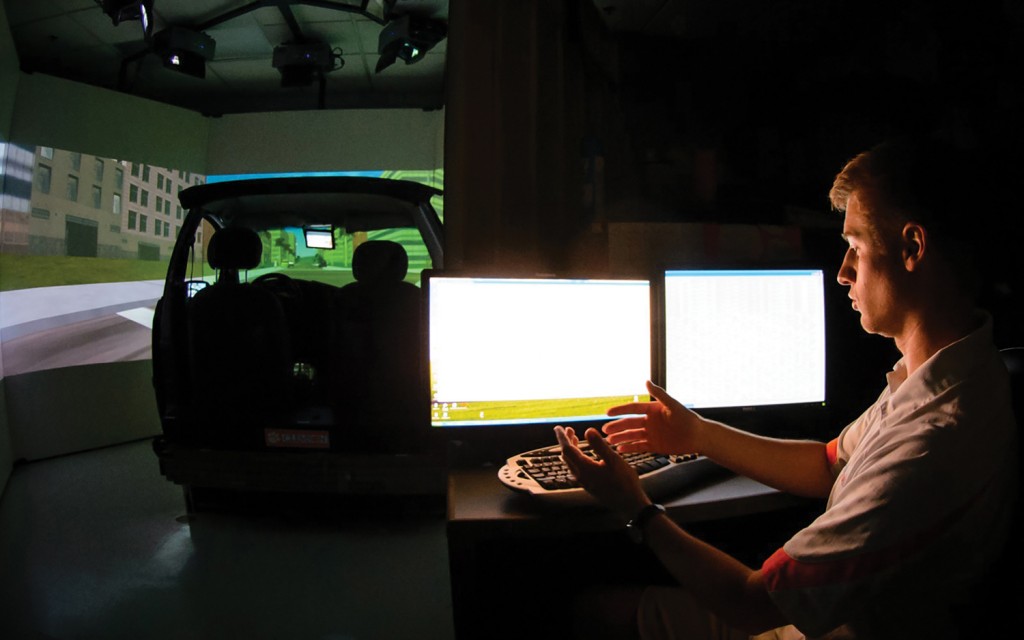a wake-up call for drowsy drivers
by Rick Uhlmann
 Drew Morris explains how the simulator measures variation in the path of the car. Photo by Ashley Jones.
Drew Morris explains how the simulator measures variation in the path of the car. Photo by Ashley Jones.
Drowsy drivers take a heavy toll on the nation’s highways, causing an estimated 56,000 crashes annually with more than 40,000 of them resulting in injuries or death. So finding a reliable way to test for fatigue could help save lives.
Previous studies of drowsy or distracted drivers have tended to focus on psychophysiological metrics, including driver eye movements, muscle activity, and changes in heart rate to determine alertness. But some of these kinds of measurements have been shown to be inaccurate and can interfere with driving. Researchers at Clemson found that a reliable, less intrusive way to detect fatigue or drowsiness in a driver is to monitor vehicle behavior rather than the biometrics of the person behind the wheel.
The study tested twenty volunteers whose attentiveness was measured in a vehicle simulator during a twenty-six-hour stretch without sleep. The volunteers drove for about twenty minutes on a fifteen-mile course that included nine curves. Driving performance was assessed for lateral lane position, lane heading, and vehicle heading using a global positioning system (GPS).
“GPS capability is standard technology in many cars, so it’s very easy to monitor every movement of a vehicle,” says June Pilcher. Pilcher is a psychologist and part of a research team that also includes Drew Morris, a Ph.D. student, and Fred Switzer, a professor of psychology. Their findings were published in the July 2015 issue of the journal Accident Analysis & Prevention.
Doze detection
“By employing more accurate GPS technology to pinpoint the vehicle’s orientation on the road, the driver could be notified if the driving is getting dangerous,” Morris says. “The vehicle may even present information like a video game, with a stream of driving statistics.”
The idea of using GPS to detect a vehicle’s deviations could help improve safety by warning not only drowsy drivers but those distracted by texting, socializing, or picking things up from the floor, Pilcher says. “Early detection of a vehicle’s movement deviation is a step in the direction of preventing a tragedy. Though we can’t say this type of detection will prevent an accident from occurring, it can provide a warning to a driver who may not believe danger is imminent.”
Drew Morris is a Ph.D. student in human factors psychology, June Pilcher is an alumni distinguished professor of psychology, and Fred Switzer is a professor of psychology, all in the College of Business and Behavioral Science.


